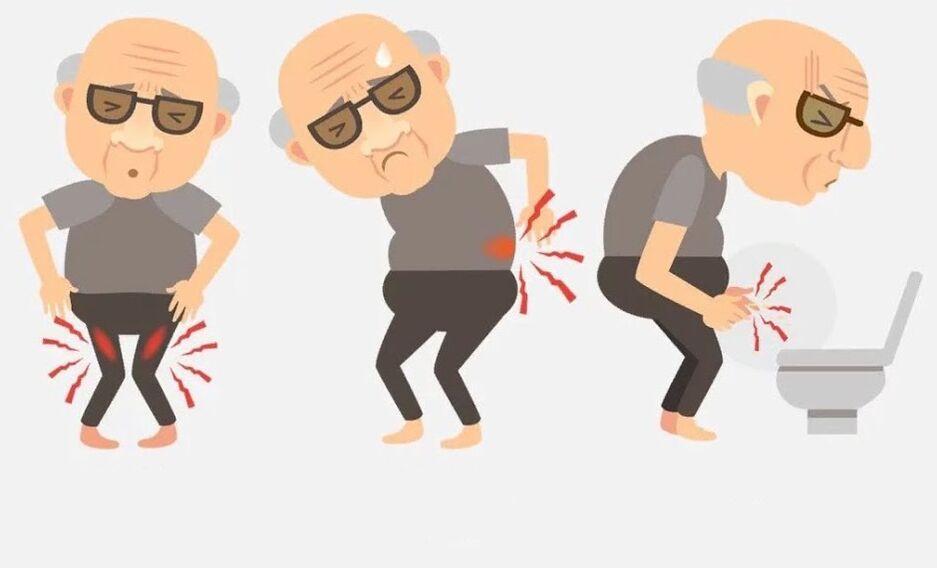All men are affected. Therefore, after identifying the initial symptoms, it is important to consult a doctor for information on how to cure prostatitis.
Prostate inflammation doesn't just occur in people who are at risk. All men are affected. Therefore, after identifying the initial symptoms, it is important to consult a doctor for information on how to cure prostatitis. Specialized centers will help with correct diagnosis and effective treatment!
what is prostatitis
Prostatitis is a common condition of the genitourinary system of sexually strong people. One in four consults a doctor with characteristic symptoms.
Prostatitis is divided into several categories:
- Acute bacteria - pathogens are mainly Escherichia coli, rarely enterococcus;
- Bacterial chronic - in addition to E. coli, viruses, trichomoniasis, chlamydia, fungi, mycoplasma, remissions and relapses occur;
- Chronic pelvic pain syndrome - in this pathological condition, no infection is found, the disease occurs with or without inflammation, in provocateurs: low physical activity, rare sexual activity, hyperthermia / hypothermia;
- Asymptomatic - no characteristic signs, diagnosed incidentally (usually by a doctor's examination).
Only a urologist can determine the type of disease. After a thorough diagnosis, a treatment plan is developed and carried out under the supervision of the attending physician.
Prostatitis can be cured? For cases in which the pathology is in the early stages of development, the answer is yes. It is important to prevent the disease from turning into a chronic form. It is better to take preventive measures in time to prevent the inflammatory process of the prostate.
symptoms of prostatitis
How do I know if I have prostatitis? It is necessary to pay attention to the slightest changes in the functioning of the urogenital system. Among the common signs of pathology:
- frequent urination, difficulty urinating;
- Significant reduction in daily urine output;
- Pain during bowel movements that radiates into the groin;
- After defecation, observe urethral discharge;
- burning of the perineum and urethra;
- Spontaneous nocturnal erections;
- increased body temperature;
- weakened erection;
- ejaculation too fast during intercourse;
- The inexorable feeling of orgasm.
This disease is accompanied by pain of different nature. Where does prostatitis hurt:
- in the scrotum;
- in the perineum;
- at the base of the penis.
refer to! The acute form of the pathology is accompanied by frequent headaches.
Urination in prostatitis is intermittent and may be accompanied by pain. The bladder is not completely emptied. The stream is slow. Characteristic symptoms are often accompanied by decreased work capacity, loss of appetite, and rapid fatigue.
refer to! Prostatitis blood contains specific prostate antigens. It was detected in diagnostic studies of biomaterials.
The symptoms of the acute form are different from those of the chronic disease. In the second case, periods of remission alternate with periods of relapse.

Causes of prostatitis
The main cause of the development of the pathology, what doctors call stagnation of blood in the pelvic organs. Mostly, this is due to a sedentary lifestyle, being overweight, a sedentary job, and an unbalanced diet.
Other causative factors include:
- genetic predisposition;
- low temperature;
- long-term urinary retention;
- Gastrointestinal dysfunction;
- poor arterial circulation;
- irregular sex life;
- Genitourinary diseases;
- Infect;
- There are chronic lesions in the body;
- Frequent injuries to the perineum and adjacent areas;
- Sexually transmitted diseases lack proper treatment.
refer to! Alcoholism and frequent stress can also lead to prostate inflammation, especially if your immune system is weakened.
What triggers the development of chronic pelvic pain syndrome, a type of prostatitis, remains unknown. The disease is believed to have developed against the backdrop of damage to the body caused by the herpes, mycoplasma, and chlamydia viruses. Some scientists believe that the cause should be sought in autoimmune processes, persistent hypothermia, and low physical activity.
The treatment of prostatitis
Modern medicine has accumulated rich experience in pathological research and has a comprehensive understanding of how to treat male prostatitis.
Treatment plans are developed on the basis of diagnostic data. First, the focus of prostate inflammation is eliminated. In addition, with the help of drugs, sexual disorders and other diseases are corrected.
The keys to successful treatment are:
- Early diagnosis;
- Well-designed comprehensive treatment plan;
- Follow your doctor's advice.
refer to! Serious diseases such as prostate adenoma, inguinal hernia, secondary cystitis, and lower ureteral calculi can be ruled out with the help of differential diagnosis according to the painful location of male prostatitis.
Patients were treated using the following methods, taking into account the form of pathology.
- Medication - Provides intake of immunomodulators, vitamins and minerals, antibiotics.
- Physiotherapy - mainly used in combination with medication. The methods are characterized by high efficiency: magnetic laser massage, shock wave therapy, ultrasonic therapy.
- Surgical Intervention - In the absence of positive dynamics after a course of medication, the decision to proceed to surgery is made.
When identifying the first signs of pathology, you should not delay seeing a doctor, but rather self-medicate. This has led to a worsening of the problem, with serious consequences that need to be resolved completely. It is best to make an appointment with a urologist right away.
What doctors think about the disease boils down to the fact that prostatitis in men can be cured if treatment is started as soon as the first signs are noticed. Treatment of chronic forms requires a comprehensive approach. At the same time, recurrence is not excluded even after long-term remission.






























